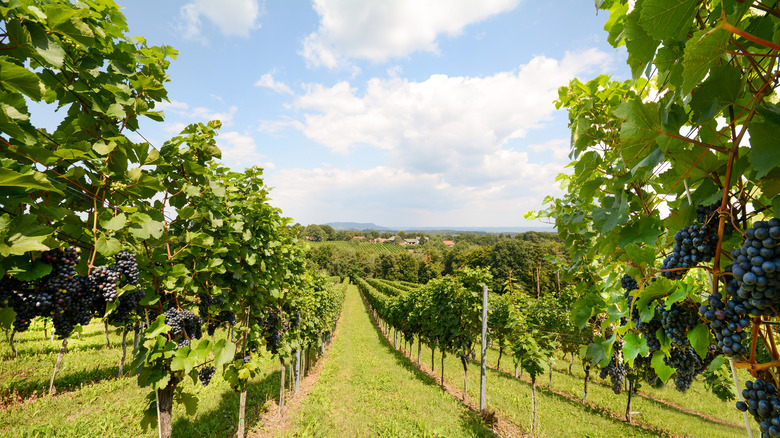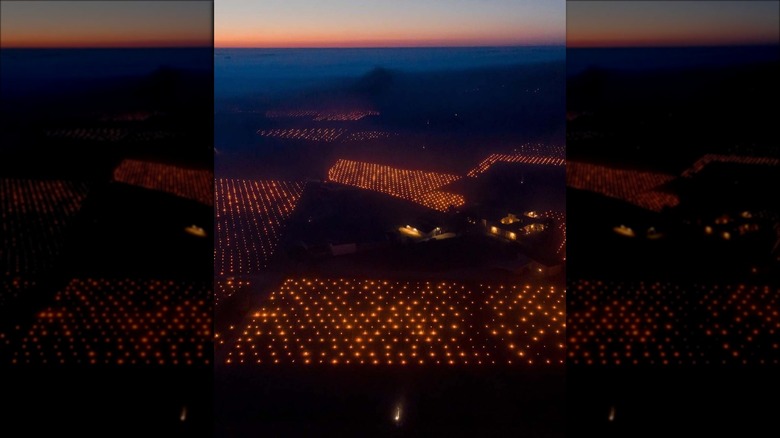French Wine Might Become More Difficult To Find. Here's Why
Those who are tuned into the wine world likely already know the industry has been particularly tough for a handful of European countries, but no place was hit harder than France in early 2020. When a tariff was imposed on French wines last year, its exports fell by 13.9 percent while shipments decreased by six percent, according to Decanter. Champagne exports alone fell by more than 20 percent in 2020. Needless to say, it was quite a troublesome year that was even worse than expected.
Unfortunately, 2021 seems to be attempting to surpass 2020 in awful news for the French wine industry. Due to climate change, there were significant changes in the weather among the wine-growing regions of France this spring. Initially, the weather was particularly warm for the season, which then snapped, and was followed by temperatures far too low for early growth (via Eater). This is a major issue because the cold weather can kill any growth that the vines had begun to show. That means that could be and will be lasting damage for this year's crop.
Climate change was a huge factor for winemakers
According to Wine Enthusiast, temperatures dipped down to "as low as 22°F" over the past few weeks, which resulted in frost. A cold snap that severe might actually be the most damaging in French winemaking history. While that's a devastating blow for many of the vineyards and winemakers, it's also disappointing news for Americans looking to buy French wines in the not-so-distant future. Simply put, there won't be many, if any, bottles from 2021 that will be exported to the U.S. after such losses in the vineyards.
The reason comes down to how much the vineyards are affected by the freeze. Though most winemakers built and tended small fires along the aisles between the vines to ward off frost, it seems that the tactic did not work as well as they had hoped. According to Eater, as much as 80 percent of vineyards in France were affected by the frost. Some winemakers even lost roughly half of their crop. Without a crop, there won't be grapes to make wine. Without an excess or high enough volume of wine to export, most bottles from this year will be staying in France.
So start looking for other vintages to spring for. It's clear the U.S., like other countries, will be in short supply of French wine in the future.

